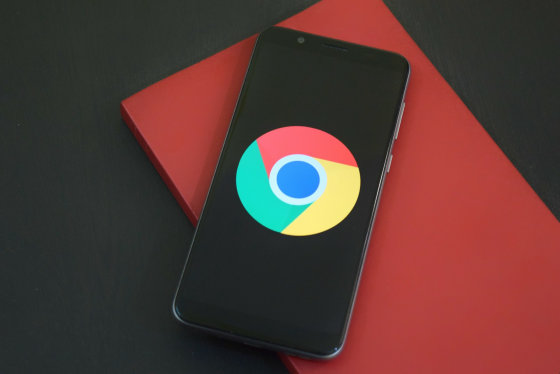What happens when Google realizes a cookieless ``privacy sandbox''?

Countless companies conduct advertising transactions on the Internet, but users' personal information, which is important for conducting advertising transactions, is collected using cookies , especially third-party cookies . However, Google plans to abolish Chrome's third-party cookie support by 2022, and the development of a new 'advertising trading mechanism' is urgent. Press Gazette , a news site about journalism, summarizes information on what exactly is the new mechanism `` privacy sandbox '' that Google is trying to create, and what happens when it is realized.
Death of third party cookies: Enter sandbox from Google
https://www.pressgazette.co.uk/death-of-third-party-cookies-sandbox-google/
The role of cookies is to save the information entered on the website in the web browser when the Internet user visits a specific website. At this time, the 'first party cookie' issued by the visited website basically does not track the user's behavior after leaving the website, but the 'first party cookie' issued by an advertising company other than the visited website If a 'third-party cookie' is present, the user's behavior will be tracked even after the user has left the website. In recent years, such third-party cookies have been regulated as ``excessively tracking user behavior and infringing personal information,'' and Apple completely blocked third-party cookies in Safari in March 2020. . In response to this trend, Google also announced in 2020 that it would abolish support for third-party cookies in Chrome within two years.
However, Google is the world's largest advertising company that derives most of its revenue from advertising, and in the past claimed that ``If you do not use cookies for targeted advertising , your site's revenue will be halved.'' For this reason, it is urgent to devise a mechanism to replace cookies.
In 2019, Google proposed a mechanism called ' Privacy Sandbox' as a mechanism to replace third-party cookies.
Google declares that it will develop a mechanism that ``protects user information and does not impair the relevance of advertisements''-GIGAZINE

How the privacy sandbox will work is under discussion at the time of writing the article. Specifically, it is possible to determine whether it is a bot or a human with a 'trust API' like Google's CAPTCHA, and to give a budget to information that can identify individuals, and to obtain information within that budget. There are proposals such as 'Privacy Budget API', a mechanism to do so, and 'TURTLEDOVE', which distributes advertisements on a per-browser basis instead of on a server.
What kind of 'cookieless advertising system' is Google trying to create? |GIGAZINE.BIZ

In addition, it was also considered to use fingerprints to identify users using detailed browser features such as the device being used and the fonts installed, but Google Chrome developer Justin ShuMr. ``Unlike cookies, users cannot delete their fingerprints, and even if they want to avoid being identified, developers cannot provide a way to do so.'' About.
In this way, although it is scheduled to be completed in 2022, the content of the privacy sandbox has not yet been fixed, and concerns have been raised from the advertising industry. There is also a view that Google's market dominance will further advance by building an advertising system that abolishes cookies. Due to the nature of cookies, the owners of cookies are the companies, brands and individuals that operate the website, but if advertisement delivery and targeting are performed on a browser-by-browser basis, the owner of the information is the developer of Chrome. To become a certain Google. It is also possible that Google's domination of the advertising market will reduce media revenue.
However, it is believed that cross-device tracking of users by Google will be easier when delivering ads based on Chrome. The user logs in to Chrome, browses, watches YouTube, and purchases something, so it is easy to understand the flow of ``what the user is interested in and what to buy'' Because it becomes In other words, although it is easier for advertisers to do ``analysis to ultimately lead to purchases'', on the other hand, ``everything is provided by Google'' and ``how it works is only Google The point of 'knowing' exists as a concern.

In addition to the above concerns, the organization Marketers for an Open Web may reduce revenue by two-thirds if the media side uses the privacy sandbox without accessing cookies. has asked the UK Competition and Market Authority (CMA) to delay the launch of the Privacy Sandbox.
Google has proposed a privacy sandbox as a mechanism to eliminate cookies, but in addition to this, various organizations are proposing and developing cookieless mechanisms. TheTradeDesk, which provides a digital advertising platform, has devised an approach that uses ' Unified ID Solution 2.0 ', which uses hashed and encrypted email addresses as IDs. I agree with the construction of a strong infrastructure. In addition, the Interactive Advertising Bureau (IAB), an industry association for internet advertising, has launched a project called ' Project Rearc ' to develop new technical standards and guidelines.
In this way, the situation related to Internet advertising is about to change dramatically, and concerned parties are concerned that they will not be able to obtain the profits that have been obtained so far. However, on the other hand, with the new advertising system, the media side will be able to restore its position as a manager of data transactions, and it is possible that profits can be expected to increase more than ever. In fact, the New York Times has announced that it has achieved comparable performance by eliminating third-party cookies and building its own advertising system.
The New York Times reported that highly efficient targeting advertisements could be delivered without third-party cookies - GIGAZINE

Related Posts:
in Web Service, Posted by darkhorse_log







